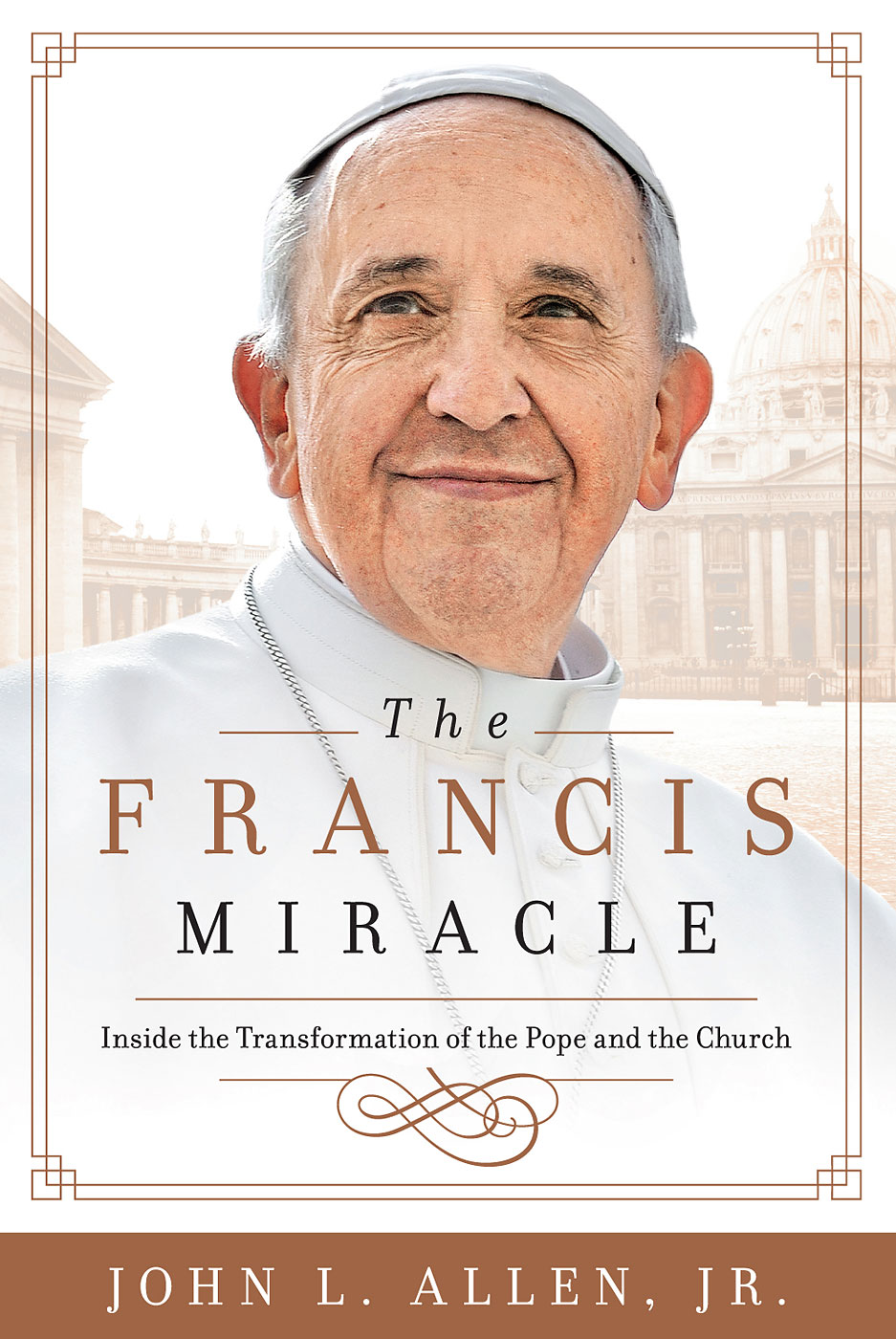
This month marks the second anniversary of Pope Francis’ election. The following is taken from THE FRANCIS MIRACLE: Inside the Transformation of the Pope and the Church by John L. Allen Jr.
It was probably inevitable that the first pope named Francis—inspired by a saint who preached to birds and gave pet names to the sun and the moon—has turned out to be a strong environmentalist. In fact, Francis has said that concern for the environment is a defining Christian virtue. (The young Jorge Bergoglio trained as a chemist, so he has a foundation to appreciate the scientific issues involved.) This element of the social gospel bubbled to the surface as early as his inaugural mass, when Francis issued a plea to “let us be ‘protectors’ of creation, protectors of God’s plan inscribed in nature, protectors of one another and of the environment.”
St. Francis’s imprint on this pope is clearly strong. In unscripted comments during a meeting with the president of Ecuador in April 2013, he said, “Take good care of creation. St. Francis wanted that. People occasionally forgive, but nature never does. If we don’t take care of the environment, there’s no way of getting around it.”
The two previous popes were also environmentalists. The mountain-climbing, kayaking John Paul II was a strong apostle for ecology, once issuing an almost apocalyptic warning that humans “must finally stop before the abyss” and take better care of nature. Benedict XVI’s ecological streak was so strong that he earned a reputation as “the Green Pope” because of his repeated calls for stronger environmental protection, as well as gestures such as installing solar panels atop a Vatican audience hall and signing an agreement to make the Vatican Europe’s first carbon-neutral state.
Francis is carrying that tradition forward. Among other things, he told French President François Hollande during a January 2014 meeting that he is working on an encyclical on the environment. (An encyclical is considered the most developed and authoritative form of papal teaching.) The Vatican has since confirmed that Francis indeed intends to deliver the first encyclical ever devoted entirely to environmental issues.
In a July 2014 talk at the Italian university of Molise, Francis described harm to the environment as “one of the greatest challenges of our times.” It’s a challenge, he said, that’s theological as well as political in nature. “I look at . . . so many forests, all cut, that have become land . . . that can [no] longer give life,” the pope continued, citing South American woodlands in particular. “This is our sin, exploiting the Earth. . . . This is one of the greatest challenges of our time: to convert ourselves to a type of development that knows how to respect creation.”
Not so long ago, the idea of Catholic environmentalism would have struck some as a contradiction in terms. In the 1960s and 1970s, it was fashionable among pioneers of the environmental movement to fault the entire Judeo-Christian tradition for humanity’s savage indifference to the earth. Lynn White, Jr., of the University of California published an influential article in the journal Science in 1967 in which he blamed the Bible for making Westerners feel “superior to nature, contemptuous of it, willing to use it for our slightest whim.” While acknowledging contrary currents in Christian history such as St. Francis, White nonetheless ended with a sweeping indictment: “We shall continue to have a worsening ecological crisis until we reject the Christian axiom that nature has no reason for existence save to serve man.”
Today things are virtually upside down, with Pope Francis seen as an important environmental advocate. Writing in The Atlantic Monthly, Tara Isabella Burton praised Francis for “publicly—with the dizzying reach granted to a man in his position—emphasizing an understanding of nature that, in contrast to the combative dichotomy so prevalent in mainstream politico-religious discourse, is intrinsically positive in its treatment of the physical world.” Burton called the pope’s vision one “that is, radically and profoundly, pro-life.” Burton’s reference to “pro-life” connotes that Francis is leading Catholics to view environmental concern as part and parcel of what it means to foster a “culture of life,” and therefore of equivalent importance as resisting abortion and gay marriage.
In the argot of contemporary environmental thinkers, if Benedict XVI was the Green Pope, then Francis may be remembered as the “Dark Green Pope”—a figure who intensifies the Church’s commitment to the environment by linking it to the corrosive effects of consumerism and runaway global capitalism. Before Francis arrived on the scene, the American political theorist Jeremy Rifkin forecast that issues such as GMOs and climate change would dissolve the old left-right divisions, creating a new “biopolitics” in which defenders of nature on the left and defenders of human life on the right would find themselves allies, standing against a 21st-century hyper-industrialism that sees everything, including nature and organic life, as a commodity. Francis, the pope of the social gospel, could develop into the leader who makes Rifkin’s prediction come true.
Excerpted from THE FRANCIS MIRACLE: Inside the Transformation of the Pope and the Church by John L. Allen Jr., published by TIME Books, an imprint of Time Home Entertainment Inc.
More Must-Reads From TIME
- The 100 Most Influential People of 2024
- The Revolution of Yulia Navalnaya
- 6 Compliments That Land Every Time
- What's the Deal With the Bitcoin Halving?
- If You're Dating Right Now , You're Brave: Column
- The AI That Could Heal a Divided Internet
- Fallout Is a Brilliant Model for the Future of Video Game Adaptations
- Want Weekly Recs on What to Watch, Read, and More? Sign Up for Worth Your Time
Contact us at letters@time.com